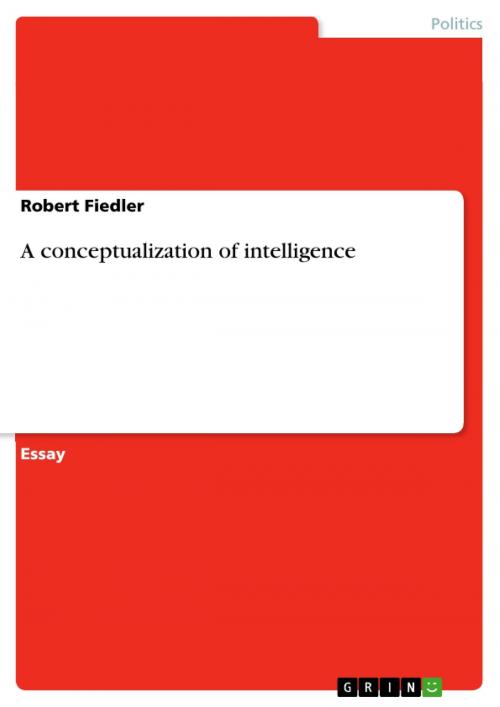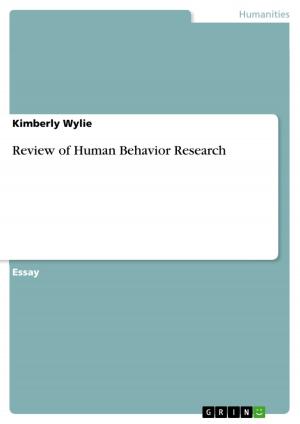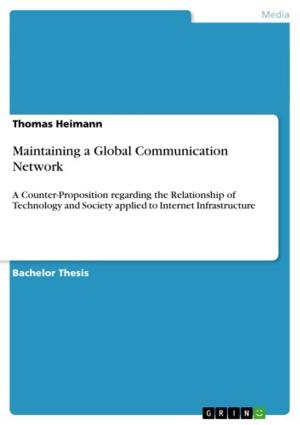| Author: | Robert Fiedler | ISBN: | 9783640784233 |
| Publisher: | GRIN Publishing | Publication: | December 23, 2010 |
| Imprint: | GRIN Publishing | Language: | English |
| Author: | Robert Fiedler |
| ISBN: | 9783640784233 |
| Publisher: | GRIN Publishing |
| Publication: | December 23, 2010 |
| Imprint: | GRIN Publishing |
| Language: | English |
Essay from the year 2008 in the subject Politics - International Politics - Topic: Miscellaneous, grade: 1,5, Macquarie University, language: English, abstract: Given the evolution of the term intelligence during the last decades, it is easily comprehensible that its pristine meaning becomes blurry. In fact, intelligence 'means many things to many people [and] boiling it down to one single definition is difficult' (Warner, 2007, p. 15). The growing 'application of the concept or perhaps the illusion of intelligence analysis to various information processing activities that are not really intelligence in the professional sense of the word' (Agrell, 2002, p. 4) increases the difficulties to formulate a precise and applicable definition. Nevertheless in a 'business as old as recorded history, one would expect to find a sophisticated understanding of just what that business is, what it does and how it works' (Warner, 2007, p. 15). Therefore it is the more astonishing that 'all attempts to develop ambitious theories of intelligence have failed' (Laqueur, 1985, p. 8). In the following this paper will analyze some problems of finding a universally agreed upon definition of intelligence before the attempt to find a own conceptualization.
Essay from the year 2008 in the subject Politics - International Politics - Topic: Miscellaneous, grade: 1,5, Macquarie University, language: English, abstract: Given the evolution of the term intelligence during the last decades, it is easily comprehensible that its pristine meaning becomes blurry. In fact, intelligence 'means many things to many people [and] boiling it down to one single definition is difficult' (Warner, 2007, p. 15). The growing 'application of the concept or perhaps the illusion of intelligence analysis to various information processing activities that are not really intelligence in the professional sense of the word' (Agrell, 2002, p. 4) increases the difficulties to formulate a precise and applicable definition. Nevertheless in a 'business as old as recorded history, one would expect to find a sophisticated understanding of just what that business is, what it does and how it works' (Warner, 2007, p. 15). Therefore it is the more astonishing that 'all attempts to develop ambitious theories of intelligence have failed' (Laqueur, 1985, p. 8). In the following this paper will analyze some problems of finding a universally agreed upon definition of intelligence before the attempt to find a own conceptualization.















